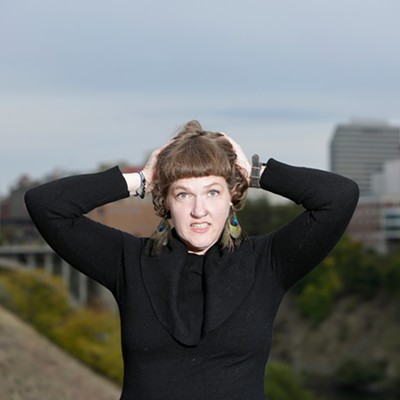Spokane City Council President Breean Beggs has been interested in changing the way the city attorney is hired for a long time — even before he was appointed to the council in 2016. And this November, he got a chance to make the pitch, asking voters to approve a proposal that would give the city attorney a seven-year term and give the City Council the primary power to make the pick instead of the mayor. Nah, voters said. The ballot measure creating an independent Spokane city attorney was narrowly rejected, failing 48.7 percent to 51.1 percent, losing by just over 1,700 votes. Campaign finance records show that the Spokane Good Government Alliance, funded by donors like Washington Trust Bank, Spokane Home Builders Association and hotelier Jerry Dicker's company, spent at least $25,000 on ads opposing the idea. Beggs estimates that it will be more like $85,000 when the final tally comes in. "There was no pro-campaign," Beggs says. "Given that it was that close, that made a difference." Meanwhile, there were over 12,000 voters in the city who didn't vote one way or another. (DANIEL WALTERS)
RURAL NEEDS
A new study from Washington State University shows that rural schools are less likely to be able to provide mental health resources for students. The study's lead author, Janessa Graves, who lives in rural northeast Washington and is an associate professor with WSU's College of Nursing, looked at nationwide data from the 2017-2018 School Survey on Crime and Safety. The study found that about 51 percent of public schools offer mental health assessments, while only 38 percent offer mental health treatment. Rural schools were 19 percent less likely to offer assessments. "We're seeing a pretty consistent pattern across the country that rural schools just don't have the resources," Graves said in an emailed announcement after the study's publication in the American Journal of Preventive Medicine. "This is especially troubling given the rapid rise in youth suicide rates, which is disproportionally affecting rural areas." Surprisingly, very few rural schools blamed a lack of community support. "The fact that only 6.5 percent of rural schools called it a major barrier gives me hope that communities are rallying behind this issue," Graves said. (SAMANTHA WOHLFEIL)
SAVING HISTORY
In addition to casting votes for the expanded Spokane County Board of Commissioners and Congress earlier this month, residents on Spokane's lower South Hill had one extra measure to decide: whether they wanted to see their neighborhood designated as a Spokane Historic District. Residents of the Cliff-Cannon neighborhood approved the historic protection measure with a 56 percent majority. Only 290 "yes" votes were needed for approval, but 324 votes came back in the affirmative. Overall, 391 property owners voted, with 82 percent of them in favor of the historic district. This designation, which is similar to one in Browne's Addition, will help preserve the lower South Hill neighborhood's historic aesthetic and make it easier for homeowners to get tax incentives for restoration projects. Before the designation is official, there will be hearings before the Spokane Landmarks Commission and city planning commission, and then a vote by the City Council. For more on the next phase of the process, visit historicspokane.org/cannon. (CHEY SCOTT) ♦





















